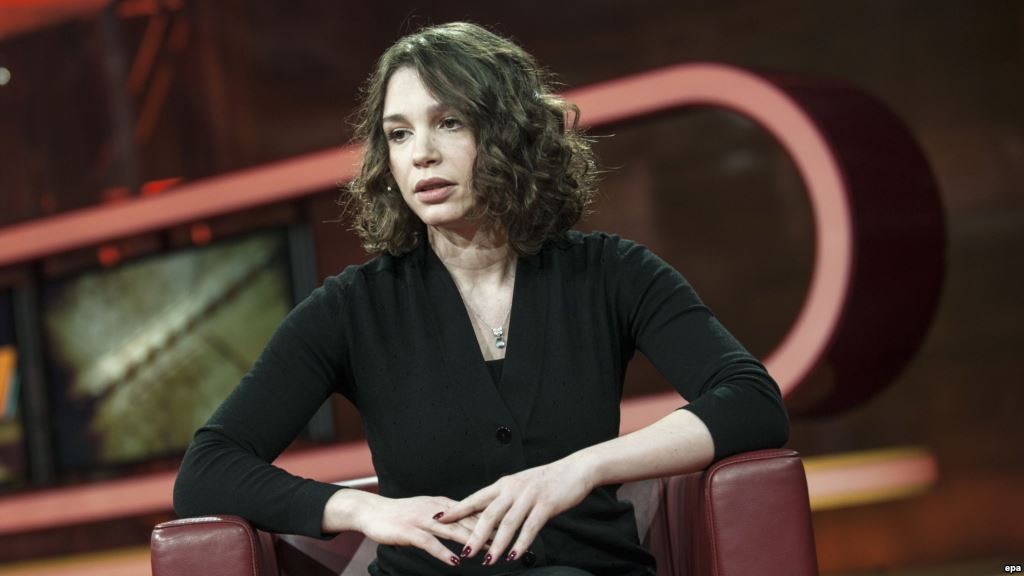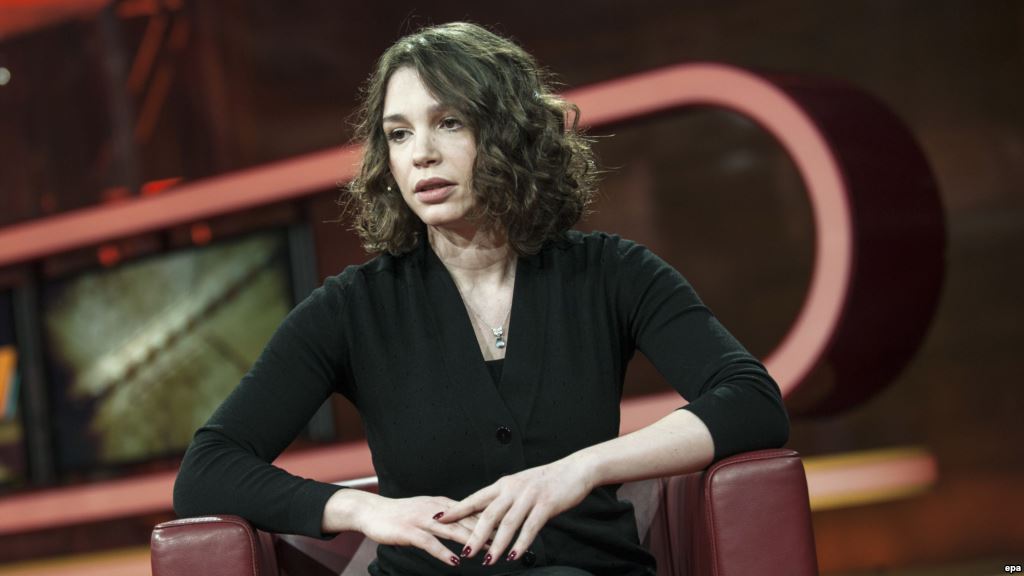
The eldest daughter of slain Kremlin critic Boris Nemtsov has stepped up her criticism of the Russian state media, drawing a parallel with Nazi propagandists and accusing national TV channels of “sowing hatred” that leads to deadly violence.
“Russian propaganda kills,” Zhanna Nemtsova wrote in article published by the Russian daily Vedomosti on June 9. “It not only kills reason and common sense, it literally kills.”
Nemtsova, 31, recently left Russia, and supporters have said she does not know when she might return. She told RFE/RL last week that she has received many threatening messages on social media since her father was shot dead near the Kremlin on February 27, and does not feel safe in Russia.
In the Vedomosti article, Nemtsova said state media share the blame for the killing of her father, a liberal former deputy prime minister, lawmaker, and regional governor who had become one of President Vladimir Putin’s most prominent and vocal critics.
Nemtsov’s killing was “political revenge” for which state TV executives “who for many years have been methodically inciting hatred toward him and other opposition leaders, portraying them as ‘national traitors,’ bear personal responsibility,” she said.
Nemtsova likened Russian state propaganda to media rhetoric in Nazi Germany and genocide-era Rwanda, pointing to the role state media played during the 1994 mass killings in the African country.
She said “a similar state-run campaign of mass brainwashing” has been taking place in Russia in recent years, playing one part of the population off against another.
“Putin’s information machine — similar to those in Nazi Germany and Rwanda — is using criminal methods of propaganda, and sowing hatred which generates violence and terror,” Nemtsova wrote.
“Instead of the Tutsis they target liberals, opposition figures, the West, the ‘Kyiv junta,’ while ‘Russian patriots’ play the role of the Hutus,” she said, referringto the ethnic group whose members were largely responsible for the killing of some hundreds of thousands of Tutsis in Rwanda.
The ‘Kyiv junta’ is a term Russian media have used to describe the pro-Western leaders who came to power following the ouster of Moscow-backed Ukrainian President Viktor Yanukovych in February 2014.
Nemtsov vocally opposed Russian involvement in the war that broke out in between government forces and pro-Russian separatists in eastern Ukraine after Yanukovych fled to Russia, and had been working on a report documenting the deaths of Russian soldiers there when he was killed.
Zhanna Nemtsova has joined a push for Western governments to impose sanctions on high-ranking Russian media managers and journalists who allies of the slain politician say are guilty of inciting hatred in Russian society.
Nemtsova recently handed Polish leaders a “Nemtsov list” of such media figures. The list of eight includes Dmitry Kiselyov, the head of the state-owned media organization Rossia Segodnya; Oleg Dobrodeyev, director of state broadcaster VGTRK; and Aleksei Pushkov, a television presenter and lawmaker.
By Farangis Najibullah, RFE/RL





